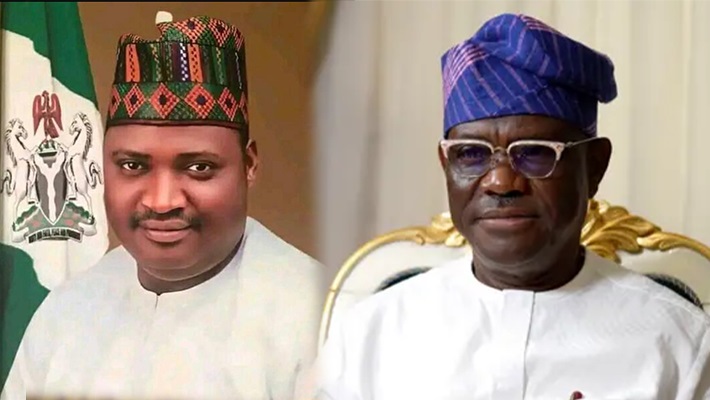Like in many countries, misinformation about COVID-19 has circulated widely in Morocco during the pandemic. Much of it came from the US and Europe.
In early April 2020, just as the COVID-19 pandemic was spreading across the world, two French doctors suggested on live television that scientists test the tuberculosis vaccine on Africans to see if it might work against COVID-19.
Reporting for this story was supported by the Pulitzer Center. It is the second article on vaccine hesitancy in Morocco. You can read the first article on Western Sahara, North Africa’s COVID-19 “black hole” here.
“If I can be provocative, shouldn’t we be doing this study in Africa, where there are no masks, no treatments, no resuscitation?” said Jean-Paul Mira, head of intensive care at Cochin hospital in Paris. “A bit like as it is done elsewhere for some studies on Aids. In prostitutes, we try things because we know that they are highly exposed and that they do not protect themselves.”
The other doctor, Camille Locht, head of research at the French National Institute of Health and Medical Research, agreed: “You are right. We are actually thinking about leading a study in parallel in Africa.”
The video spread quickly and the two doctors were accused of racism, with Africans across the continent insisting “we are not lab rats”. African celebrities were quick to condemn the doctors’ statements, including the Ivorian football star Didier Drogba and Cameroonian soccer star Samuel Eto’o.
The Moroccan Lawyers Club is now suing the doctors for discrimination in a Paris court. They say the doctors’ comments may have endangered African lives by dissuading them from taking lifesaving COVID-19 vaccines. Although the reasons for vaccine hesitancy in parts of Africa are complex, and in some cases rooted in a history of unethical medical research in the region, there is growing evidence that misinformation played an important role in people’s decisions to get the immunisation or not.
A 2021 study by the Africa CDC found that 45% of respondents in 15 African countries believed rumours that Africans were being used as guinea pigs in vaccine trials. The survey also found that 42% believed false rumours that poor people were being singled out for vaccine trials and a third incorrectly believed vaccine trials had already caused African children to die.
Two days after the original exchange, Mira issued a statement apologising “to those who were hurt, shocked and felt insulted by the remarks that I clumsily expressed”. Locht issued no apology, and his employer defended him by insisting he was “the subject of misinterpretations on social networks”.
“I have never dissuaded any Africans, nor any other person in the world from taking Covid-19 vaccines,” Locht told the BBC, adding that studies were underway in some Western countries to see if the tuberculosis vaccine could be effective against Covid-19. “I simply felt that we should not exclude the African continent from the potential benefits” of such research, he says. Mira declined to comment.
The dangers of the unvaccinated
At the end of January 2023, the World Health Organization said it continued to regard the Covid-19 pandemic as a public health emergency of international concern as new variants continue to arise and cause fresh waves of disease. Scientists warn that vaccine hesitancy in developing nations such as in Africa could prolong the pandemic as unvaccinated people may be more likely to incubate new Covid-19 variants.
“If you are not vaccinated, your cell defence will not catch the virus very quickly, so you will leave the virus more time to escape,” says Rachid Ait Addi, professor of internal medicine and an epidemiologist at Cadi Ayyad University in Marrakech, Morocco. What’s more, “in unvaccinated people, the [virus] can replicate in the body for a longer period of time before the immune system suppresses it”.
Vaccine hesitancy is seen as a problem in many countries, where a complex web of reasons combine to influence people’s acceptance of immunisation efforts. France, for example, has some of the highest levels of vaccine hesitancy in the world, which are tied up with public distrust of their government’s health policies, poor communication about side-effects and historical scandals in past vaccination programmes.
Across the African continent, politicians, social media influencers and even journalists have spread western conspiracies as well as doubts about Covid-19 vaccines. In Tanzania, former president John Magufuli initially downplayed the pandemic, refusing to impose any Covid restrictions or release numbers on Covid-19 cases. He also claimed without evidence that vaccines may be part of a foreign plot to steal Africa’s wealth. Many Tanzanians saw logic in Magafuli’s argument, even after he died in March 2021 from what was reportedly Covid-19.
Just like in the West, in Africa, fake news about Covid-19 is rampant. One survey found that half of South Africans incorrectly believed the coronavirus was related to 5G technology, which is thought to have stemmed from claims made by a Belgian doctor and have been widely debunked. This is the same conspiracy theory that led to arson attacks on mobile phone masts in the UK.
Another study found that people in Ethiopia’s capital of Addis Ababa who received most of their news from social media were three and a half times more likely to harbour hesitancy than those who got their news from traditional media like TV and radio.
The doubts, the misunderstandings – much of that came from the West – Mustapha Amirich
In Kenya, where more than half of the country uses social media, traditional media spread vaccine disinformation, too. Two-thirds of Kenyans surveyed by the Africa CDC said they believed they’d read news about Covid-19 that was untrue.
In Morocco, after a video surfaced of a woman having a rare reaction to a vaccine, “there was a lot of fear”, said Mustapha Amirich, Casablanca regional director for the Ministry of Health. False rumours about the vaccine spread on YouTube, he says, and many of those videos Amirich came across originated in democracies in Europe and the United States.
“The doubts, the misunderstandings – much of that came from the West,” says Amirich.





